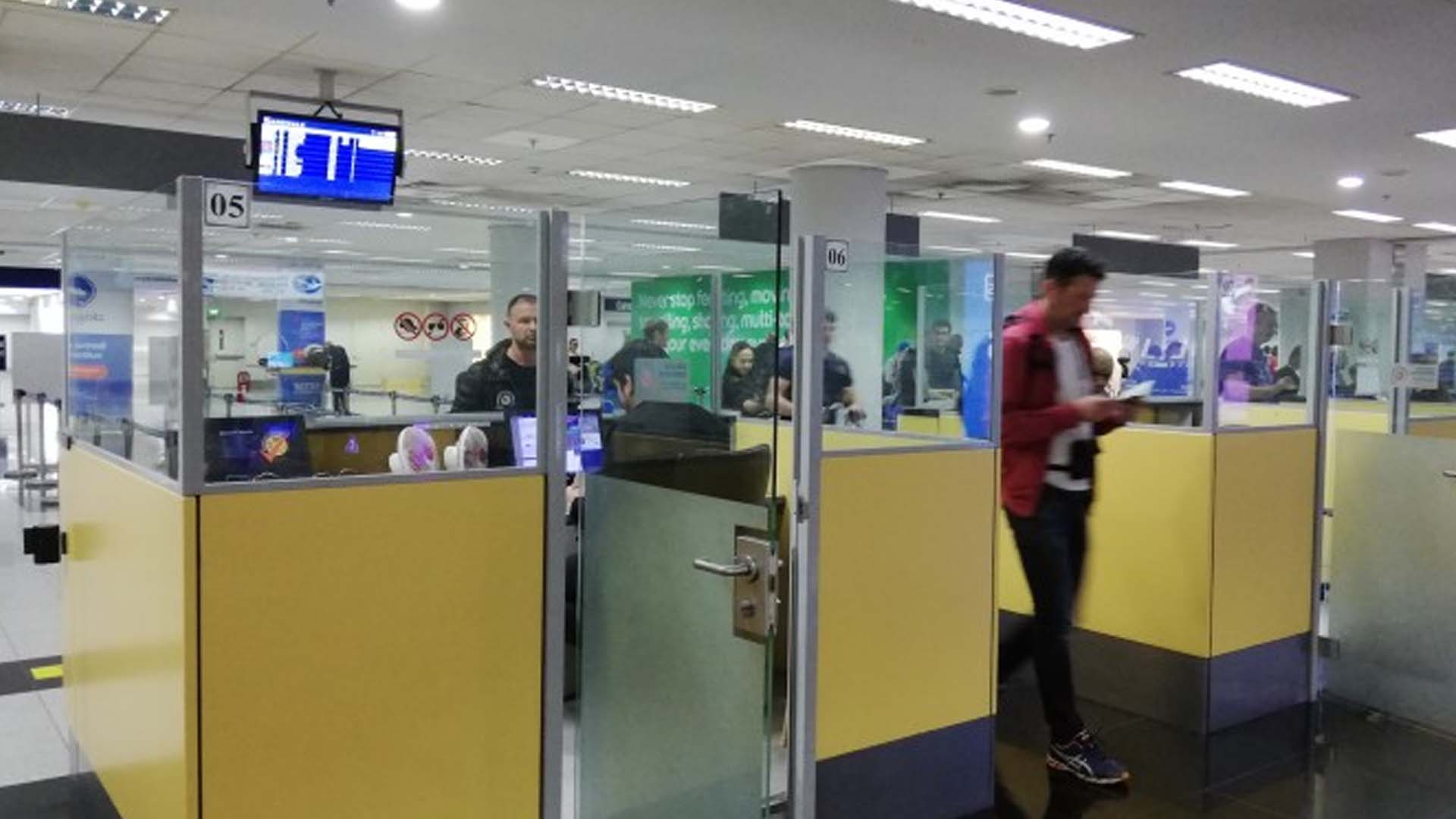Eight more immigration counters have been opened at the Ninoy Aquino International Airport (NAIA) Terminal 3 to help ease the long queues of passengers after the terminal reassignment of airlines, the Manila International Airport Authority (MIAA) said Wednesday.
There are now a total of 44 immigration counters at Terminal 3 and an additional six counters will be put up at the immigration annex within the year, MIAA’s Media Affairs Division said.
Earlier, the MIAA announced that the completion of the immigration annex construction is being eyed by December. The annex will cater to persons with disabilities, senior citizens, diplomats, and overseas Filipino workers.
In a radio interview, MIAA Public Affairs officer in charge Consuelo Bungag said the mounting of additional counters had been discussed with stakeholders and the Bureau of Immigration.
The additional counters seek to address congestion as some airlines have been transferred to Terminal 3 under MIAA’s schedule and terminal assignment rationalization (STAR) program.
From April 16 to June 1, eight airlines – China Southern, Jetstar, Scoot, Starlux, Jeju Air, Ethiopian Airlines, Thai Airways, and Gulf Air — have moved operations to Terminal 3.
The STAR program aims to maximize the capacity of all the NAIA terminals and eventually make Terminal 2 an all-domestic facility.
The MIAA management earlier noted that through this program, Terminal 2’s capacity would increase by at least 20 percent, accommodating up to 10 million passengers annually from its current capacity of 7.5 million passengers a year.
In a separate interview, MIAA officer in charge Bryan Co said they had begun the re-layout of the X-ray baggage screener, which now comes first before the immigration counters.
He said if the final security screening goes first, this could be used to screen both international and domestic passengers.
“We do the same security standards for international and domestic passengers. So that gives us more flexibility,” he said. (PNA)





